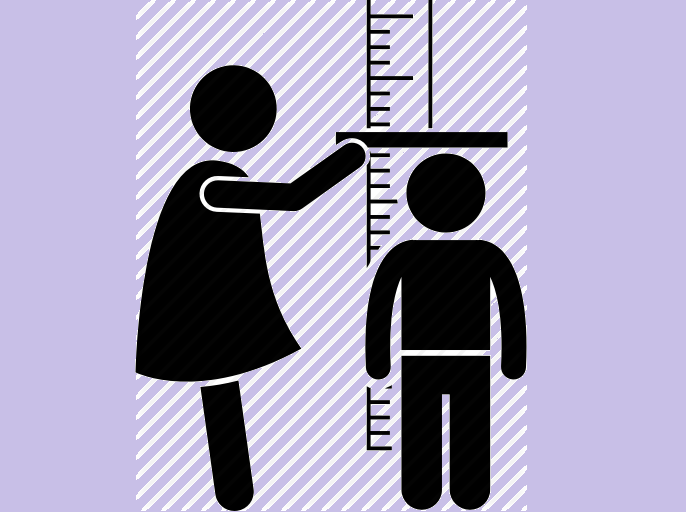QUESTION:
What do the scholars of the Dīn and muftīs of the Sacred Law state regarding the following issue: What are the considerations and precautions with regards to parenting and bringing up children?
Questioner: Zahid from UK
ANSWER:
بسم اللہ الرحمن الرحیم
الجواب بعون الملک الوھاب اللھم ھدایۃ الحق والصواب
Without a doubt, child rearing is necessary. In doing so, the following guidelines must be adhered to.
1. Engage children in physical, social and household activities. The biggest problem among children in the UK is the lack of social interaction. Children in the age group of 15-20 years do not know when to smile, when to cry, how to greet elders or how to meet them. I learn about this by observing the people lined up to meet the imam after the Jumu’ah prayer. When the parents lecture their children on the virtues of the imam and ask them to greet him, the 15 or 20-year-old child gives a fake smile and greets the imam.
Reason for such behaviour: Stopping children from engaging in social and physical activities. The child goes from the school to the madrasa and from there to his home and engages in the gaming console, smartphone, tablet, TV, etc., and is brought up in this routine. Smartphones have consumed the child’s time that would have been utilised in building friendships. Befriending other children inculcates many skills in a child. It gives a child the ability to differentiate between the good and the bad. It develops forbearance in the child and gives him the ability to deal with different temperaments. Thus, they are successful in recognising different people and live with them. Otherwise, the person might find it difficult to live with his wife too, which is the reason for increased number of cases of divorce.
The time spent on playing with pets like cats is being consumed by devices like tablets. Playing with pets develops feelings in them, due to which they inculcate a caring attitude towards others. As a result of this, the child does not become selfish and will always prefer his parents and siblings over himself.
Gaming consoles have consumed time that used to be spent playing outdoor games which keep children physically and mentally fit.
Parents must safely take their children outdoors at fixed times and encourage them to engage in outdoor activities. They must allow them to play in open lands. As per a new research by scientists of Chicago University, playing on soil strengthens the immune system of children. As per a research conducted in 2016, it has been established that children who live in rural areas or those who play on soil are immune to tuberculosis.
For such activities, parents must take out time and effort. Due to this, they are unwilling to engage in them. As a result of this, they face greater problems and see the following results.
The child screams, shouts and swears at the parents, is always glued to the television and smartphone, and is always gaming. He is involved in these activities to such an extent that he is a victim of psychic disorders which destroy his future completely. The child becomes a constant headache to the parents. The parents are majorly responsible for this.
2. Allowing children to progress according to their hidden talents. It has been observed in Pakistan and even in the UK that a doctor’s son aspires to become a doctor, an engineer’s son aspires to become an engineer and a religious scholar’s son aspires to become a religious scholar. Alternately, parents dream of making their children doctors or engineers or accountants, thinking that these professions will earn them good money and make them financially independent. However, children dream of becoming artists, astronomers, graphic designers, computer experts, history researchers, etc. As a result, the child does not become a doctor or an artist and ends up in becoming a taxi driver to meet his financial expenses. Thus, it is necessary that parents allow their children, from a young age, to involve in activities that help them express their hidden talents, so that, in future, they choose a profession of their choice and excel in it, thus bringing a good name to their parents.
3. Seeking counsel from children and making them one’s assistant. Most parents nowadays complain that children are stubborn and do not pay heed to what they say. However, such parents, due to their own behaviour, are responsible for the stubbornness of their children, because they want to impose their choices upon them, and doing so is totally wrong. In order for children to be flexible in their behaviour, parents must show flexibility in their own behaviour as well. Seeking their counsel in household issues makes them self-confident and makes them one’s assistant. When making decisions concerning them, try to win their confidence. Consider their choice actually and not just ceremonially. In this way, a long-term problem could be avoided.
There have been many incidents in the UK where, in the midst of the marriage ceremony, the bride calls the police and complains that her parents are marrying her off forcefully. The honour of the parents and their daughter is compromised. Therefore, parents must always involve their children while making decisions concerning them.
4. Defining rules for living in the home. Nowadays, parents try to console their children when they commit mistakes. However, that time is not for consoling them as the parents might naturally be harsher and the child does not accept. This might even raise the parent’s temper, which is more harmful. On certain occasions, the child does not consider his mistake as a mistake and thinks that the parent is wrong.
In order to console children before they commit mistakes, certain rules must be set within the home. This can happen when principles and laws of living in the home are defined and put up in the children’s room where they can easily notice them. When the child commits a mistake, he realises his own folly even if he wishes to hide it from his parents. This is due to the rules that have been set which are instilled in the child’s heart due to noticing them time and again.
If there were no rules set, then the child would never have realised his folly, even after your advising him.
Example: Every company has its own rules. If any employee breaks these rules, the company terminates him. They train the employees to adhere to the rules as soon as they join. Upon breaking the rules, the employee is even terminated, and he even accepts the termination. If the rules were not in place, the employee would have considered his termination to be oppression against him and even protested.
5. Parenting guidelines from the child’s birth to his youth.
Imam Ahmad Rida Khan (may Allah ﷻ have mercy upon him) states:
- As soon as the child is born, call out the adhan (call to prayer) four times in its right ear and the takbir (call to commence the prayer) three times in its left ear so that it is protected from the whisperings of the Satan and epilepsy.
- Get tahnik done by a scholar, elder or pious person. Method: the person doing it must chew a date or something sweet, then place it in the child’s mouth and rub it on the palate.
- Perform the aqiqah on the 7th or 14th or 21st
- Shave the head.
- Weigh the hair and give its equivalent amount of silver in charity.
- Apply saffron on the head.
- Name the child with a good name.
- If the child asks for something, give it in a good manner.
- Do not address the child with a bad name, even if it is out of love. A name once given is difficult to get rid of.
- Treat these entrustments from Allah ﷻ with love and affection.
- Do not make false promises in order to cajole them. It is permissible to make only those promises with children which are intended to be fulfilled.
- If there are a few children, distribute things among them equally. Do not prioritise one over the other.
- Make sure to get gifts for them while returning from travel.
- Teach them to say “Allah Allah” when they start taking and after that teach them the kalima tayyibah (proclamation of faith), “la ilaha il-Allah, Muhammadun Rasulullah” (there is no god but Allah and Muhammad ﷺ is His Messenger).
- When the child begins to understand, start teaching him the etiquette to eat, drink, sit, stand, etc.
- Once they have completed reciting the entire Quran, advise them to keep reciting it.
- Teach them Islamic beliefs. A child, as per its natural disposition, is born to accept the religion of Islam and the true word. Anything that is taught at this age is like a carving on a stone.
- Instil the love and veneration of the Prophet ﷺ in their hearts as it is the source and the very essence of faith.
- Teach them the love of the Elders of the Religion and their greatness. This is a reason for safeguarding the faith.
- Start emphasising them to offer salah (the ritual prayer) from the age of seven.
- Be kind to them while teaching them.
- Console them at the appropriate moment but do not curse them as it might cause greater harm.
- During their period of study, fix a time for play as well. This will help maintain cheerfulness in their disposition.
- Do not allow them to sit in a bad company as it is more dangerous than a poisonous snake.
- When saying something to the child about which the parent feels that he will not accept it, then do not say it in a commanding tone but rather a suggesting one so that he is protected from the sin of disobedience.
[Fatawa Ridawiyyah, vol. 24, pg. 451-455]
By acting on the above-mentioned guidelines, children can be reared in a good manner.
واللہ تعالی اعلم ورسولہ اعلم صلی اللہ علیہ وآلہ وسلم
کتبہ ابو الحسن محمد قاسم ضیاء قادری
Answered by Mufti Qasim Zia al-Qadri
Translated by the SeekersPath Team
Read the original Urdu answer here: [Q-ID0786] What practical steps should us parents take in bringing up our children so they they grow up to be righteous?

























































